OPINION by: Seringe S.T. Touray
Editor-In-Chief, The Fatu Network
Reviving the Ancient Silk Road
In Beijing, as we transition into Spring, temperatures fluctuate – a contrast to the invariable political climate governing China’s 23 provinces and other administrative divisions. Out here, the contrast between local realities and mainstream media narratives couldn’t be more obvious. An example of this juxtaposition can be seen in the coverage of China’s Belt and Road Initiative (BRI).
The BRI symbolizes one of the most ambitious infrastructure projects in our modern history, and, in my opinion, the most ambitious of all. Exactly how ambitious? Depends on who you ask, and what the angle is. Now, let’s take a closer, unfiltered look.
Launched in 2013 by China’s Head of State, Xi Jinping, the initiative plans a connection between Asia, Europe, and Africa through roads, railways, ports, and other infrastructure investments. Essentially, it aims at distributing trade and economic opportunities globally.
To many, this lays out a new world order guided by China, a communist region of Asia often seen as a rival of the West, thus welcoming a more cautionary rather than positive assessment of the BRI. But are there legitimate concerns about the project? Or are criticisms clouded by anxiety over what some economists, even in the West, describe as a future rapidly tilting in favor of Chinese world dominance?
With over 140 countries participating as of 2024, the BRI encompasses 75% of Earth’s population, and over half of global GDP. To quote a portion of the official descriptions of the ruling Chinese Communist Party (CCP), “The Belt and Road Initiative is a bid to enhance regional connectivity.”
When President Xi introduced the BRI in Kazakhstan in 2013, what started as an idea to revive the ancient Silk Road trading routes evolved into something far more ambitious, despite minimal coverage from the West. But back in East Asia, on this eastern side of the Eurasian continent, Xi’s vision to connect China with the rest of the world through land and sea routes quickly took root, drawing nourishment from its five-thousand-year history as it evolved into the modernized concept it is today.
For those unfamiliar with the original Silk Road, it was a sophisticated network of trade routes that connected China with parts of Asia, the Middle East, and Europe over 2,000 years ago. And it wasn’t just about silk—spices, tea, gold, and even ideas and cultures moved along these routes, shaping much of early global exchange.
Now, there’s just a little twist, if I may say. The “Belt” in Belt and Road isn’t really a belt, neither is the “Road” an actual road—not in a literal sense, or traditional sense for that matter. Whereas “Belt” refers to overland trade corridors that stretch through Central Asia to Europe, the “Road” is actually a series of maritime shipping lanes running through Southeast Asia, the Indian Ocean, and on to Africa and Europe. But confusing names aside, the idea is bold, with China eager to knit together infrastructure, trade, and cooperation on a global scale.
Since its introduction, the Belt and Road has expanded to six major corridors. The most notable is the headline-grabbing $62 billion China-Pakistan Economic Corridor, among others connecting Western China, Russia, Mongolia, Southeast Asia, and beyond.
Separately, ports are being constructed or upgraded from the South China Sea to the Mediterranean. That’s not all. China has also busied itself with what it calls the Digital Silk Road focused on building digital infrastructure and expanding technology cooperation among participating countries. This came side-by-side with the development of a Health Silk Road for health cooperation and medical infrastructure also among participating countries.
Additionally, the BRI rolled out the Ice Silk Road for Arctic shipping routes and cooperation in the polar regions, mainly with its longtime geopolitical ally, which, according to the world map, spans both Eastern Europe and Northern Asia. That’s right – Russia.
By 2017, the Communist Party under President Xi officially incorporated the BRI into its national policy, adding a target completion date of 2049. It’s worth mentioning that this would coincide with the 100th anniversary of modern China. This is also to say, the BRI isn’t just another infrastructure project; more than that, it’s become a central part of Xi’s long-term global strategy, strictly guided by his worldview.
Much of the misinformation, or perhaps innocent misconceptions, found in some mainstream coverage originates from widespread speculation. There appears to be increasing ambiguity regarding the sources of finance for this long-term megaproject, with unsubstantiated mainstream media-propelled rumors speculating about the drying out of funds, leading to project dead ends. In reality, funds for the extensive projects are funneled through a variety of institutions, namely the Asian Infrastructure Investment Bank with over $100 billion in capital, the $40 billion Silk Road Fund, and China’s policy and commercial banks.
The Centre for Economics and Business Research projected that the BRI will boost world GDP by $7.1 trillion yearly by 2040, nine years before its scheduled completion. Even the World Bank estimates increased trade flows and reduced costs for member countries through the BRI.
Eastern vs. Western Worldviews
China’s approach to global infrastructure development through the BRI stands in notable contrast to Western models, whose development aid often comes with stringent political and economic conditions. The Chinese have instead introduced a “non-interference” policy in domestic affairs and present the BRI as a mutually beneficial economic partnership – an approach which has proven particularly attractive to developing nations that have historically felt marginalized by Western-dominated international institutions.
Oftentimes, China’s distinctive governance model is misunderstood in the West. A clear example of this is the broad Western-driven perception of China as a one-party state, much like the perception many have of the Russian Federation, under President Vladimir Putin.
The truth is, the Chinese political system currently includes up to eight legally recognized non-Communist parties participating in the political process, alongside China’s ruling Communist Party. The huge difference? Rather than compete for power – a move that often leads to distortions of reality and manipulations in a battle of narratives to garner support – Chinese political parties participate in what’s called “multiparty cooperation and political consultation” under CCP leadership. In essence, they each provide input on policy decisions and serve specific social and professional constituencies, functioning more as advisory bodies than adversarial opposition parties in the Western sense.
Another key difference between China and Western countries lies in their media philosophies. While some Western media organizations take an approach of constructive journalism (i.e. emphasis on solutions and positive developments), this approach seems secondary to the dominant model. What’s the dominant model? This oftentimes prioritizes conflict, controversy, and critical perspectives. This is, to be fair, partly driven by commercial realities and democratic ideals. Here, Western journalism adopts the role of a watchdog, hence ‘watchdog journalism,’ and deems its probing and confrontational approaches as essential to achieving greater transparency and accountability in a democracy.
Compare this with China’s approach, and you’ll notice a difference. Here in China, the media are largely state-directed in a way that promotes national unity, social harmony, and developmental achievements. Moreover, this direction aligns with the government’s own agenda. The West often dismisses this philosophy as propagandist in nature. Yet, for the overwhelming majority of Chinese people, this model plays an important role in fostering stability in China by reinforcing a shared national vision.
These differences do not end there. They extend to public attitudes towards leadership. I was struck by the widespread respect the Chinese express for President Xi during my visits to both Beijing and Anji. The first thought that sprang to my mind was the contrast between this and the polarized political climates seen in countries like the U.S. and U.K., where disrespect for leaders in many instances depends on party affiliation. Western media likes to portray Chinese citizens as resentful of a repressive government. However, my conversations with Chinese people from different walks of life reveal genuine pride, both in their leadership and national progress.
When Perception Meets Reality
Personally, I find that these inconsistent portrayals stain the record of some Western media that have also frequently labelled the BRI as “failing,” “collapsing,” or a “debt trap.” This attitude can also be observed in a wide range of content disseminated across the internet, not the least of which is the widely viewed 2024 YouTube video titled ‘How China’s Belt and Road Initiative Collapsed.’ The video uses dramatic language and imagery, depicting “half-built ghost projects” especially across African nations, and other participating nations “drowning in debt.” They further claim that related protests are “exploding” on different continents.
These frame the BRI as a geopolitical strategy rather than a development effort. But the fact of the matter is, it’s not exactly a zero-sum-game. Both can be true regarding China’s aims, so long as it aims in good faith. Such negative coverage invokes phrases like “setting the stage for a new cold war,” casting China’s infrastructure investments as tools of control.
A major concern associated with the BRI, according to some experts from the West, is the ‘risk’ it poses to its member countries, where experts fear such countries, mostly African, will grow more dependent on China in a power imbalance due to unsustainable debt. To support this theory, a 2023 study by AidData, which was conducted with the World Bank, Harvard Kennedy School, and the Kiel Institute, claimed that China has already issued $240 billion in emergency loans to 22 countries between 2008 and 2021, mostly to assist those struggling with BRI-related obligations.
The report warns that the lack of transparency over this $240 billion bailout could have global ramifications.
Here’s what’s interesting: this Western portrayal clashes with research and perspectives within China. In my discussions with the Chinese – and this includes government officials, scholars, as well as locals in Beijing and Anji – the BRI is consistently seen as a means of sharing prosperity across the world, particularly with member countries. A means of fostering mutually beneficial development. Even scholars like Deborah Brautigam of Johns Hopkins University challenge the “debt trap” narrative. In Brautigam’s own findings, she notes that “Chinese banks are willing to restructure the terms of existing loans and have never actually seized an asset from any country.”
Here’s the stranger bit. When countries fail to repay loans from Western nations or institutions, they sometimes do face debt restructuring, loss of economic sovereignty through imposed policy reforms, credit downgrades, and reduced access to future financing. In some cases, they are pressured into privatizing or relinquishing control of key national assets.
And even the Western borrowers are not immune. You might recall that during its debt crisis, Greece was compelled by the EU and IMF to privatize major assets, including handing over operations of 14 regional airports to Germany’s Fraport AG to secure bailout funds (Reuters, 2015).
Similar scenarios have affected some African nations. Let’s consider Tunisia, for instance. The North African country also faced demands to cut its subsidies and privatize some of its state-owned firms, sparking public backlash over fears of foreign control (Al Jazeera, 2023). The point of these examples is not whataboutism. The point is that the same mechanisms Western countries enforce when borrowers can’t repay loans are the very mechanisms they accuse China of enforcing, as if such enforcements are unheard of, when they’ve long been standard practice.
You might notice that mainstream media coverage frequently distorts the BRI’s scope through subtle framing. Reports describing the participation of “only” 140 countries obscure the fact that this represents about 75% of the world’s population—an extraordinary diplomatic feat. Criticism of the BRI’s “slow” progress ignores that it launched in 2013 with a 2049 target, making it a long-term vision. Yet it’s judged as though it should have revolutionized global infrastructure in just over a decade—an expectation not applied to Western-led efforts.
One might speculate that this pattern of negative framing reflects broader anxieties about China’s rise. Why? Let’s shift to Goldman Sachs – the global financial giant that projected China surpassing the U.S. as the largest economy by 2035-2040. And if that’s not enough reason for anxiety, President Xi himself has laid out China’s expectations, which see 2049, the 100th anniversary of the People’s Republic and the completion date set for the BRI, as the year China fully emerges as a modernized and socialist superpower. All this, alongside China’s growing regional influence in the Indo-Pacific.
To squeeze in a final example, China’s rapidly-growing BYD provides yet another case study portraying some western media distortions of the economic achievements of the Asian country. While there’s a strong presence of global brands like Toyota, Mercedes, Volvo, BMW, Audi and the like, they’re hardly any match for the rapid growth of BYD electric vehicles marking their territory on Chinese streets.
2024 saw BYD capturing a whopping 34.1% of China’s new energy vehicle market. By comparison, Tesla held only 6%, which isn’t terrible considering Musk’s company shares the local market with other competing global car brands, but with Tesla declining to 5.6% by early 2025, there’s much concern for Elon Musk to ponder as his company strives to stay relevant in Asia. Yet, in spite of this, some Western narratives remain steadfast in continuously underestimating Chinese innovation.
You might recall that back in November 2011, Musk laughed dismissively when a Bloomberg reporter asked him questions about what could become a future tight race between Tesla and BYD, which was slowly taking off at the time. “I don’t think they have a great product. The technology is not very strong,” Musk said, further declaring that Chinese manufacturing couldn’t compete on price.
As time has taught us exactly fifteen years later, Musk’s claims couldn’t be further from the truth. Yet similar dismissive attitudes to this day continue to shape some Western coverage of Chinese economic advances.
To throw in a couple of notable testimonials in favor of the BRI, Malaysian Prime Minister Mahathir Mohamad joined many developing countries who have welcomed the initiative for its addressing of infrastructure gaps and strategy for fostering growth. Mohamad praised it as a stringent mechanism for poverty reduction in landlocked Central Asian countries. Perhaps even more notably, the UN Secretary-General, António Guterres, also described the BRI as a vehicle for accelerating the UN Sustainable Development Goals.
So far, the BRI has attracted over $1 trillion in investments across more than 150 partner countries, and has delivered railways, ports, highways, and digital infrastructure at a scale unmatched by Western-led efforts (World Bank, 2023; Council on Foreign Relations, 2024).
To those raising concerns over the ecological impact of BRI projects, China has pretty much remained transparent regarding its renewable energy investments, with President Xi publicly pledging to end all overseas coal financing. In fact, during my visit to Beijing, I’ve seen firsthand China’s sustainable commitment. Its international training centers, strategic planning, and discussions tailored to partner countries were on display at the inauguration of the Anji International Media Training Base on May 15, which I attended at the invitation of the government. The emphasis? China’s globalist vision and ecological civilization.
Remember, even in the West, China is still widely considered to be the global leader in renewable and green energy. It’s also the largest producer of renewable energy capacity.
To conclude on a more personal note, I had the pleasure of climbing one of the seven wonders of the world – the Great Wall of China. While this isn’t relevant to the BRI, it symbolizes something noteworthy: the value of experiencing anything firsthand, or in this case, China’s achievements following a five-thousand-year history of its own making, brings about something of a spiritual awakening in a world engulfed in a geopolitical battle of narratives. I’m not asking you to take my word on China’s vision or its potential for connecting the world through ambition; rather, I encourage you to approach geopolitics with an open mind and seek diverse sources of information while questioning dominant narratives – especially when they seem to consistently maintain existing power structures.
The end.


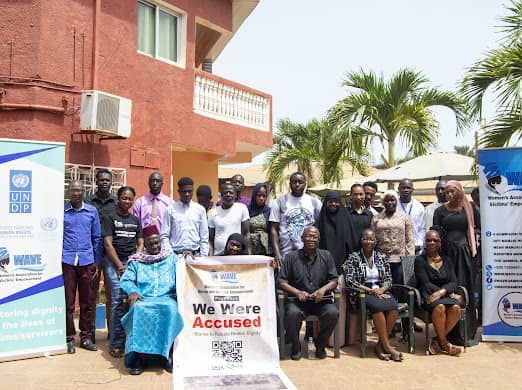
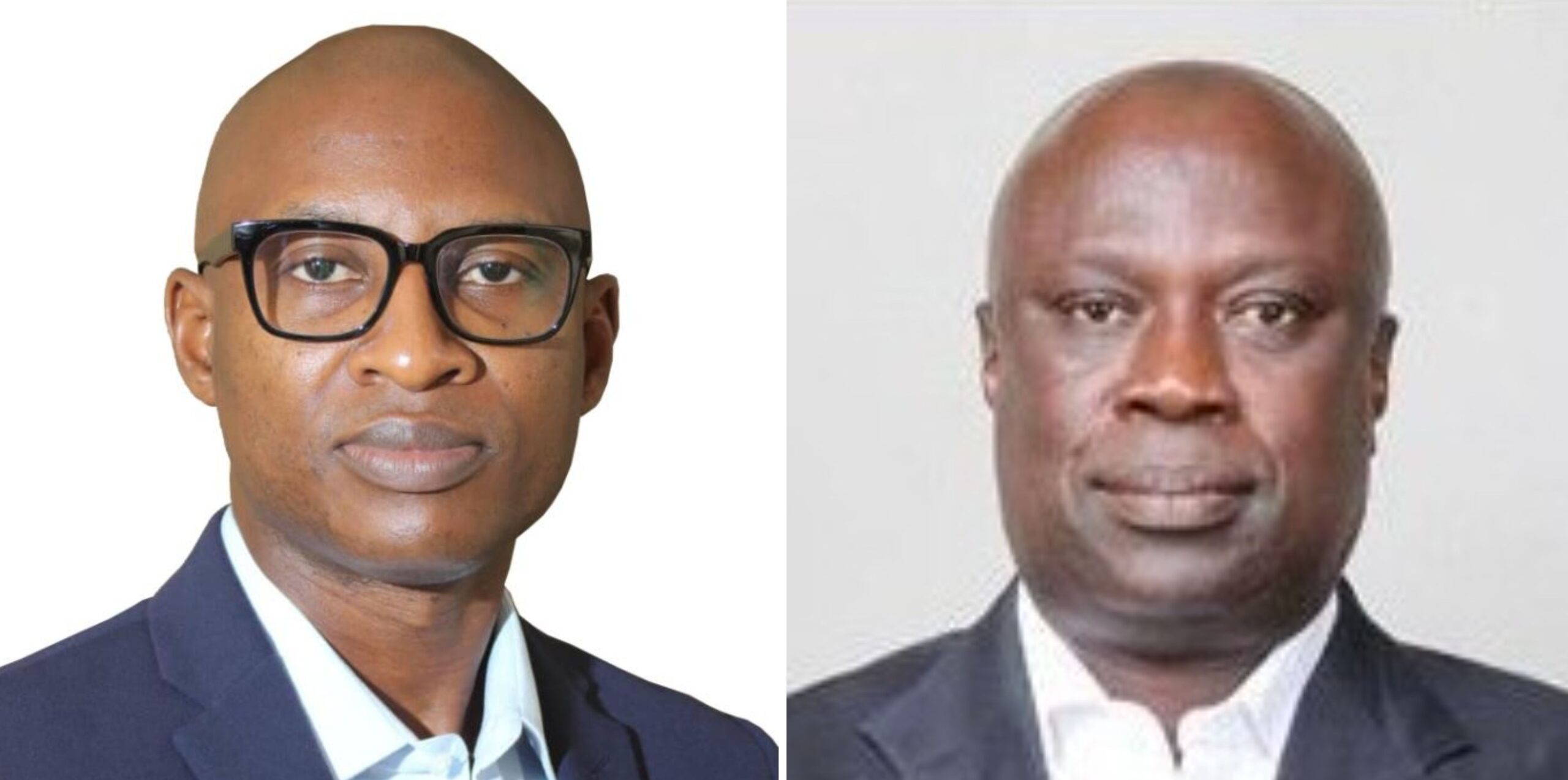

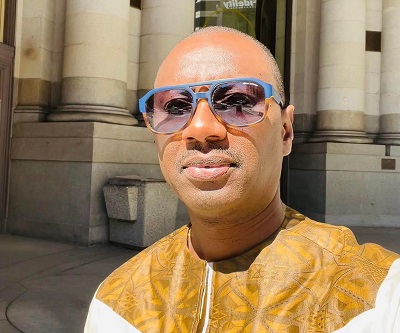
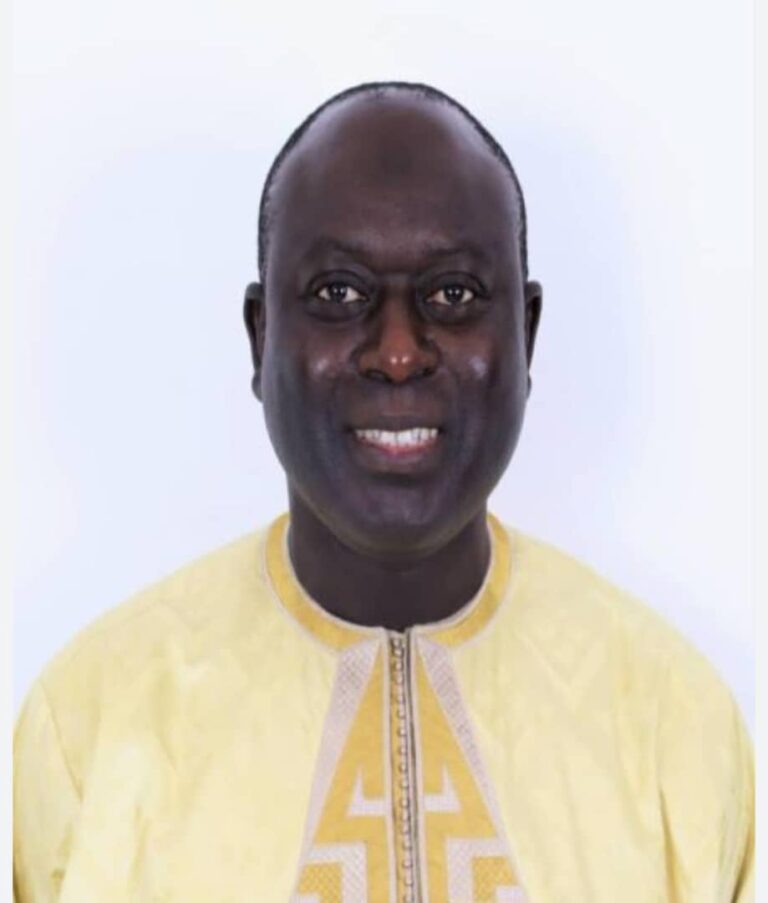

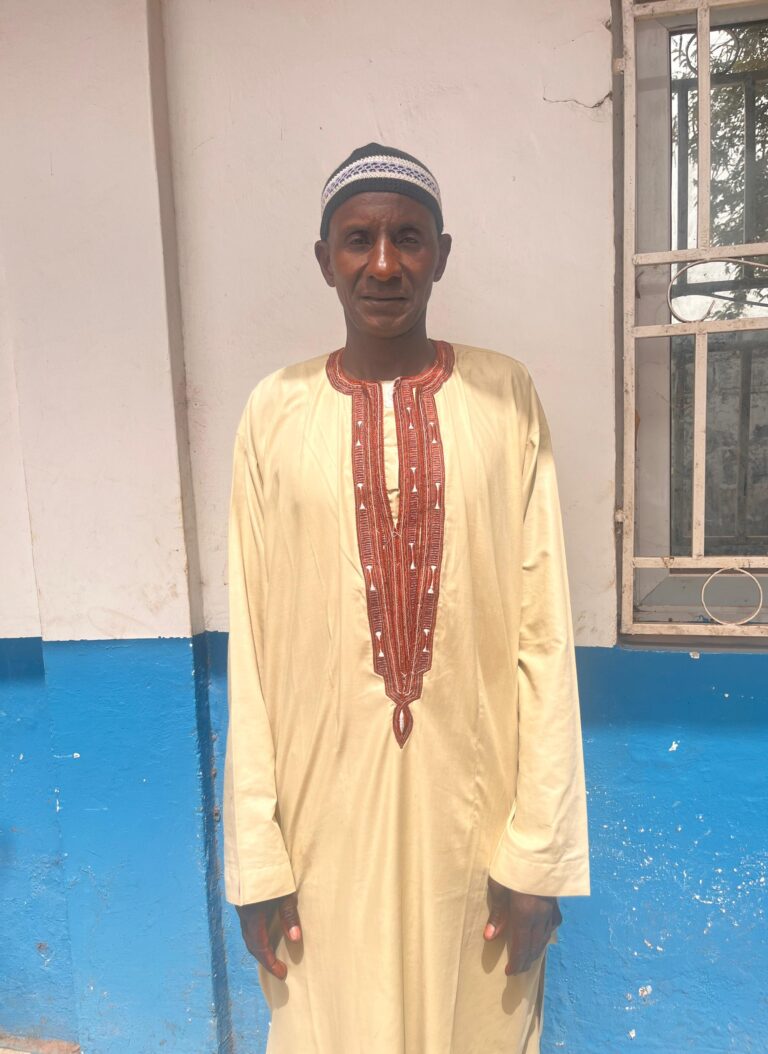
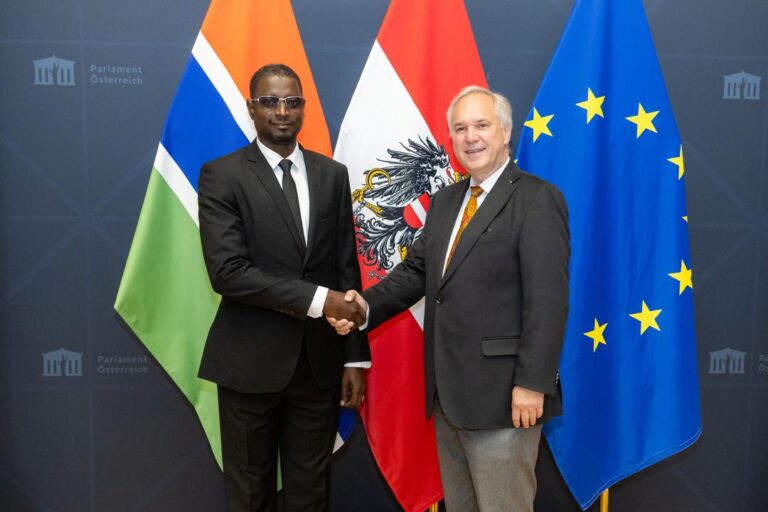
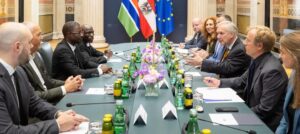
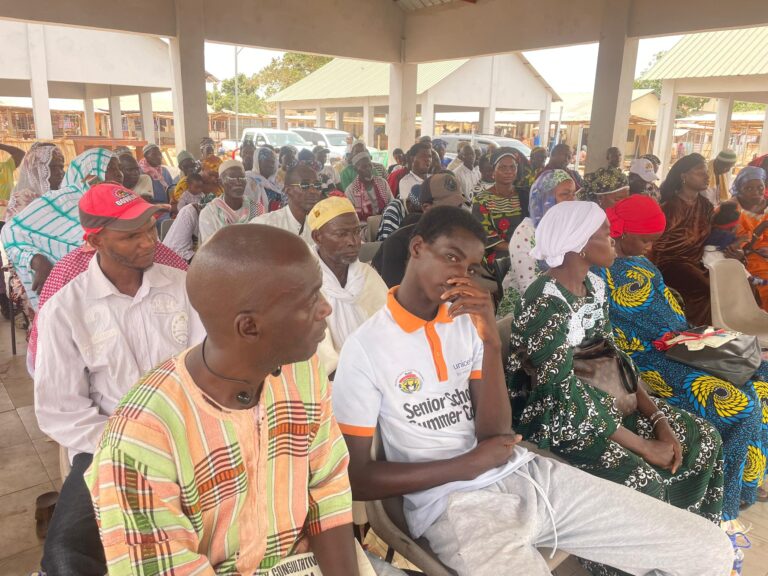
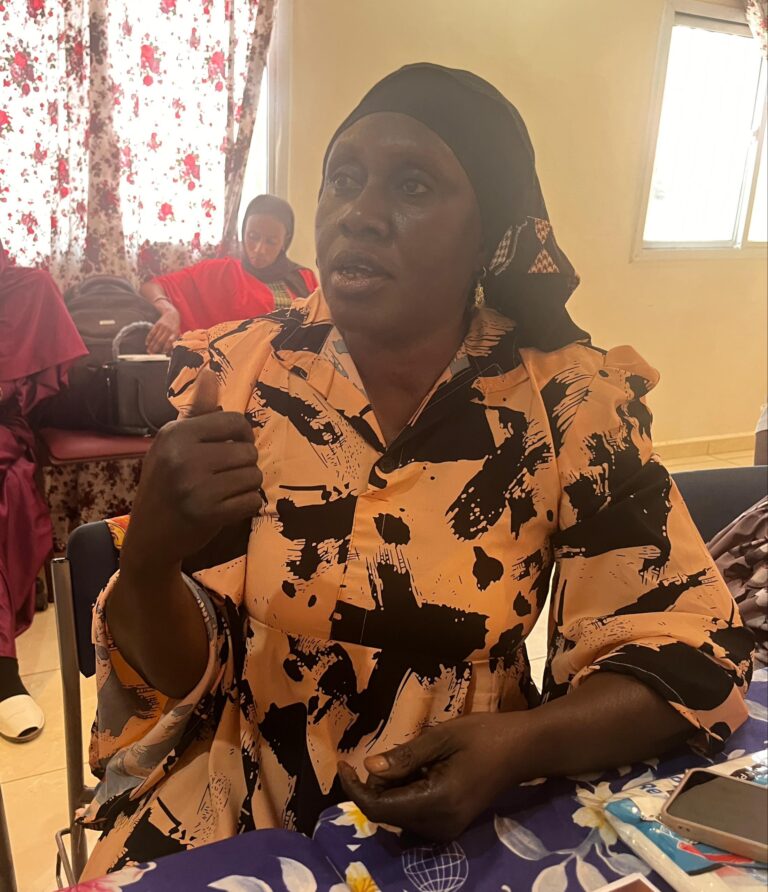
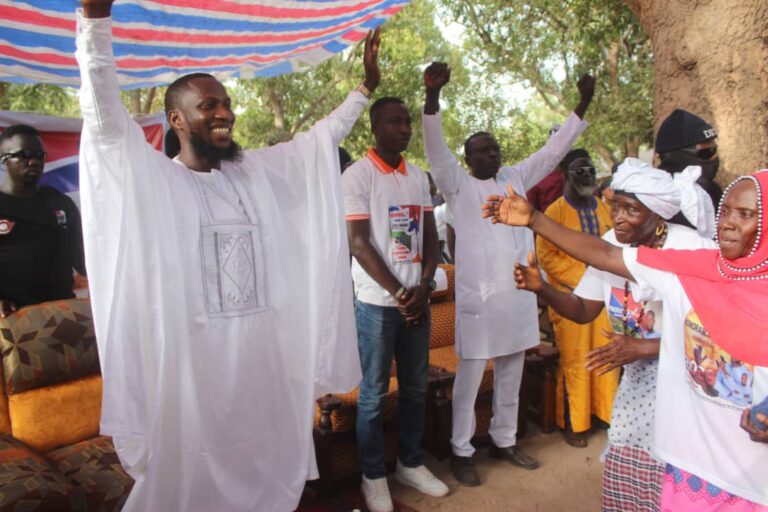

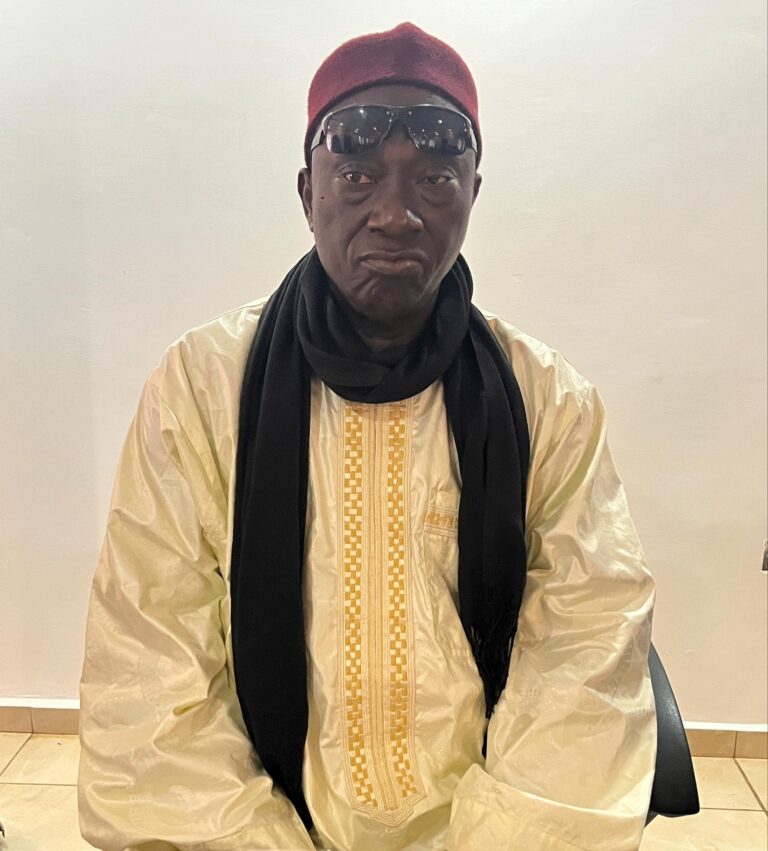
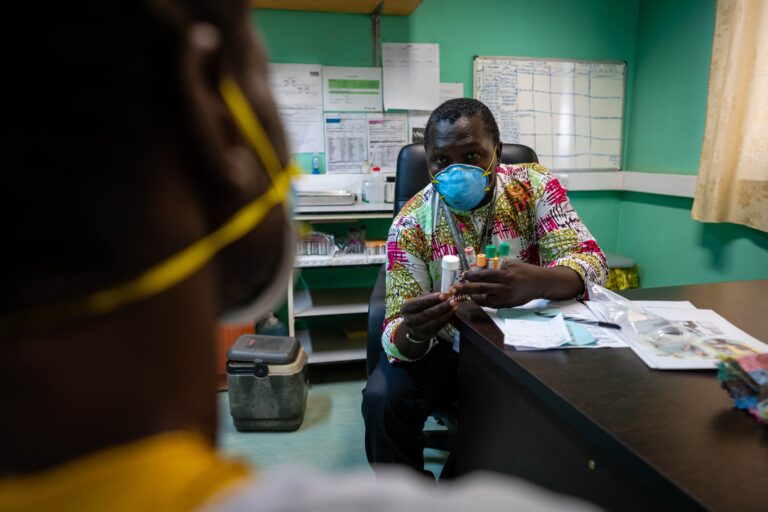
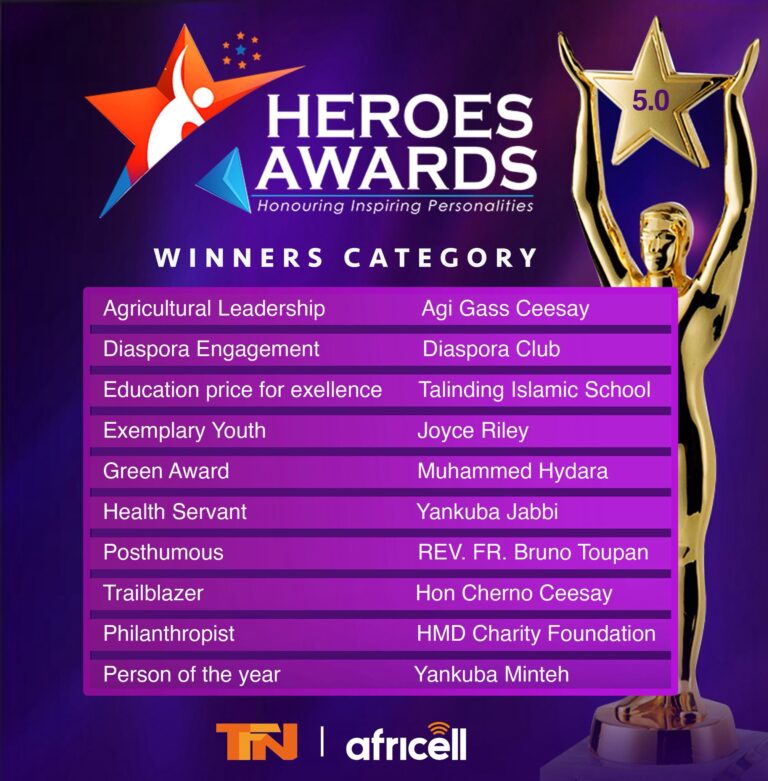


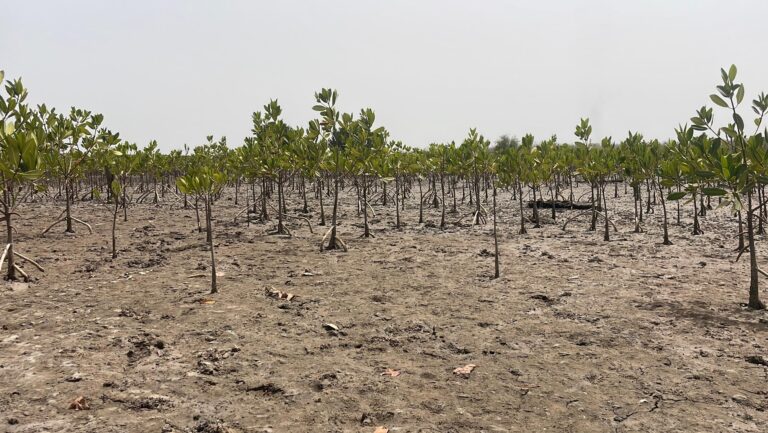
Editor’s Column #001
China’s Infrastructure Revolution:
Why West Fears East
OPINION by: Seringe S.T. Touray
Editor-In-Chief, The Fatu Network
Reviving the Ancient Silk Road
In Beijing, as we transition into Spring, temperatures fluctuate – a contrast to the invariable political climate governing China’s 23 provinces and other administrative divisions. Out here, the contrast between local realities and mainstream media narratives couldn’t be more obvious. An example of this juxtaposition can be seen in the coverage of China’s Belt and Road Initiative (BRI).
The BRI symbolizes one of the most ambitious infrastructure projects in our modern history, and, in my opinion, the most ambitious of all. Exactly how ambitious? Depends on who you ask, and what the angle is. Now, let’s take a closer, unfiltered look.
Launched in 2013 by China’s Head of State, Xi Jinping, the initiative plans a connection between Asia, Europe, and Africa through roads, railways, ports, and other infrastructure investments. Essentially, it aims at distributing trade and economic opportunities globally.
To many, this lays out a new world order guided by China, a communist region of Asia often seen as a rival of the West, thus welcoming a more cautionary rather than positive assessment of the BRI. But are there legitimate concerns about the project? Or are criticisms clouded by anxiety over what some economists, even in the West, describe as a future rapidly tilting in favor of Chinese world dominance?
With over 140 countries participating as of 2024, the BRI encompasses 75% of Earth’s population, and over half of global GDP. To quote a portion of the official descriptions of the ruling Chinese Communist Party (CCP), “The Belt and Road Initiative is a bid to enhance regional connectivity.”
When President Xi introduced the BRI in Kazakhstan in 2013, what started as an idea to revive the ancient Silk Road trading routes evolved into something far more ambitious, despite minimal coverage from the West. But back in East Asia, on this eastern side of the Eurasian continent, Xi’s vision to connect China with the rest of the world through land and sea routes quickly took root, drawing nourishment from its five-thousand-year history as it evolved into the modernized concept it is today.
For those unfamiliar with the original Silk Road, it was a sophisticated network of trade routes that connected China with parts of Asia, the Middle East, and Europe over 2,000 years ago. And it wasn’t just about silk—spices, tea, gold, and even ideas and cultures moved along these routes, shaping much of early global exchange.
Now, there’s just a little twist, if I may say. The “Belt” in Belt and Road isn’t really a belt, neither is the “Road” an actual road—not in a literal sense, or traditional sense for that matter. Whereas “Belt” refers to overland trade corridors that stretch through Central Asia to Europe, the “Road” is actually a series of maritime shipping lanes running through Southeast Asia, the Indian Ocean, and on to Africa and Europe. But confusing names aside, the idea is bold, with China eager to knit together infrastructure, trade, and cooperation on a global scale.
Since its introduction, the Belt and Road has expanded to six major corridors. The most notable is the headline-grabbing $62 billion China-Pakistan Economic Corridor, among others connecting Western China, Russia, Mongolia, Southeast Asia, and beyond.
Separately, ports are being constructed or upgraded from the South China Sea to the Mediterranean. That’s not all. China has also busied itself with what it calls the Digital Silk Road focused on building digital infrastructure and expanding technology cooperation among participating countries. This came side-by-side with the development of a Health Silk Road for health cooperation and medical infrastructure also among participating countries.
Additionally, the BRI rolled out the Ice Silk Road for Arctic shipping routes and cooperation in the polar regions, mainly with its longtime geopolitical ally, which, according to the world map, spans both Eastern Europe and Northern Asia. That’s right – Russia.
By 2017, the Communist Party under President Xi officially incorporated the BRI into its national policy, adding a target completion date of 2049. It’s worth mentioning that this would coincide with the 100th anniversary of modern China. This is also to say, the BRI isn’t just another infrastructure project; more than that, it’s become a central part of Xi’s long-term global strategy, strictly guided by his worldview.
Much of the misinformation, or perhaps innocent misconceptions, found in some mainstream coverage originates from widespread speculation. There appears to be increasing ambiguity regarding the sources of finance for this long-term megaproject, with unsubstantiated mainstream media-propelled rumors speculating about the drying out of funds, leading to project dead ends. In reality, funds for the extensive projects are funneled through a variety of institutions, namely the Asian Infrastructure Investment Bank with over $100 billion in capital, the $40 billion Silk Road Fund, and China’s policy and commercial banks.
The Centre for Economics and Business Research projected that the BRI will boost world GDP by $7.1 trillion yearly by 2040, nine years before its scheduled completion. Even the World Bank estimates increased trade flows and reduced costs for member countries through the BRI.
Eastern vs. Western Worldviews
China’s approach to global infrastructure development through the BRI stands in notable contrast to Western models, whose development aid often comes with stringent political and economic conditions. The Chinese have instead introduced a “non-interference” policy in domestic affairs and present the BRI as a mutually beneficial economic partnership – an approach which has proven particularly attractive to developing nations that have historically felt marginalized by Western-dominated international institutions.
Oftentimes, China’s distinctive governance model is misunderstood in the West. A clear example of this is the broad Western-driven perception of China as a one-party state, much like the perception many have of the Russian Federation, under President Vladimir Putin.
The truth is, the Chinese political system currently includes up to eight legally recognized non-Communist parties participating in the political process, alongside China’s ruling Communist Party. The huge difference? Rather than compete for power – a move that often leads to distortions of reality and manipulations in a battle of narratives to garner support – Chinese political parties participate in what’s called “multiparty cooperation and political consultation” under CCP leadership. In essence, they each provide input on policy decisions and serve specific social and professional constituencies, functioning more as advisory bodies than adversarial opposition parties in the Western sense.
Another key difference between China and Western countries lies in their media philosophies. While some Western media organizations take an approach of constructive journalism (i.e. emphasis on solutions and positive developments), this approach seems secondary to the dominant model. What’s the dominant model? This oftentimes prioritizes conflict, controversy, and critical perspectives. This is, to be fair, partly driven by commercial realities and democratic ideals. Here, Western journalism adopts the role of a watchdog, hence ‘watchdog journalism,’ and deems its probing and confrontational approaches as essential to achieving greater transparency and accountability in a democracy.
Compare this with China’s approach, and you’ll notice a difference. Here in China, the media are largely state-directed in a way that promotes national unity, social harmony, and developmental achievements. Moreover, this direction aligns with the government’s own agenda. The West often dismisses this philosophy as propagandist in nature. Yet, for the overwhelming majority of Chinese people, this model plays an important role in fostering stability in China by reinforcing a shared national vision.
These differences do not end there. They extend to public attitudes towards leadership. I was struck by the widespread respect the Chinese express for President Xi during my visits to both Beijing and Anji. The first thought that sprang to my mind was the contrast between this and the polarized political climates seen in countries like the U.S. and U.K., where disrespect for leaders in many instances depends on party affiliation. Western media likes to portray Chinese citizens as resentful of a repressive government. However, my conversations with Chinese people from different walks of life reveal genuine pride, both in their leadership and national progress.
When Perception Meets Reality
Personally, I find that these inconsistent portrayals stain the record of some Western media that have also frequently labelled the BRI as “failing,” “collapsing,” or a “debt trap.” This attitude can also be observed in a wide range of content disseminated across the internet, not the least of which is the widely viewed 2024 YouTube video titled ‘How China’s Belt and Road Initiative Collapsed.’ The video uses dramatic language and imagery, depicting “half-built ghost projects” especially across African nations, and other participating nations “drowning in debt.” They further claim that related protests are “exploding” on different continents.
These frame the BRI as a geopolitical strategy rather than a development effort. But the fact of the matter is, it’s not exactly a zero-sum-game. Both can be true regarding China’s aims, so long as it aims in good faith. Such negative coverage invokes phrases like “setting the stage for a new cold war,” casting China’s infrastructure investments as tools of control.
A major concern associated with the BRI, according to some experts from the West, is the ‘risk’ it poses to its member countries, where experts fear such countries, mostly African, will grow more dependent on China in a power imbalance due to unsustainable debt. To support this theory, a 2023 study by AidData, which was conducted with the World Bank, Harvard Kennedy School, and the Kiel Institute, claimed that China has already issued $240 billion in emergency loans to 22 countries between 2008 and 2021, mostly to assist those struggling with BRI-related obligations.
The report warns that the lack of transparency over this $240 billion bailout could have global ramifications.
Here’s what’s interesting: this Western portrayal clashes with research and perspectives within China. In my discussions with the Chinese – and this includes government officials, scholars, as well as locals in Beijing and Anji – the BRI is consistently seen as a means of sharing prosperity across the world, particularly with member countries. A means of fostering mutually beneficial development. Even scholars like Deborah Brautigam of Johns Hopkins University challenge the “debt trap” narrative. In Brautigam’s own findings, she notes that “Chinese banks are willing to restructure the terms of existing loans and have never actually seized an asset from any country.”
Here’s the stranger bit. When countries fail to repay loans from Western nations or institutions, they sometimes do face debt restructuring, loss of economic sovereignty through imposed policy reforms, credit downgrades, and reduced access to future financing. In some cases, they are pressured into privatizing or relinquishing control of key national assets.
And even the Western borrowers are not immune. You might recall that during its debt crisis, Greece was compelled by the EU and IMF to privatize major assets, including handing over operations of 14 regional airports to Germany’s Fraport AG to secure bailout funds (Reuters, 2015).
Similar scenarios have affected some African nations. Let’s consider Tunisia, for instance. The North African country also faced demands to cut its subsidies and privatize some of its state-owned firms, sparking public backlash over fears of foreign control (Al Jazeera, 2023). The point of these examples is not whataboutism. The point is that the same mechanisms Western countries enforce when borrowers can’t repay loans are the very mechanisms they accuse China of enforcing, as if such enforcements are unheard of, when they’ve long been standard practice.
You might notice that mainstream media coverage frequently distorts the BRI’s scope through subtle framing. Reports describing the participation of “only” 140 countries obscure the fact that this represents about 75% of the world’s population—an extraordinary diplomatic feat. Criticism of the BRI’s “slow” progress ignores that it launched in 2013 with a 2049 target, making it a long-term vision. Yet it’s judged as though it should have revolutionized global infrastructure in just over a decade—an expectation not applied to Western-led efforts.
One might speculate that this pattern of negative framing reflects broader anxieties about China’s rise. Why? Let’s shift to Goldman Sachs – the global financial giant that projected China surpassing the U.S. as the largest economy by 2035-2040. And if that’s not enough reason for anxiety, President Xi himself has laid out China’s expectations, which see 2049, the 100th anniversary of the People’s Republic and the completion date set for the BRI, as the year China fully emerges as a modernized and socialist superpower. All this, alongside China’s growing regional influence in the Indo-Pacific.
To squeeze in a final example, China’s rapidly-growing BYD provides yet another case study portraying some western media distortions of the economic achievements of the Asian country. While there’s a strong presence of global brands like Toyota, Mercedes, Volvo, BMW, Audi and the like, they’re hardly any match for the rapid growth of BYD electric vehicles marking their territory on Chinese streets.
2024 saw BYD capturing a whopping 34.1% of China’s new energy vehicle market. By comparison, Tesla held only 6%, which isn’t terrible considering Musk’s company shares the local market with other competing global car brands, but with Tesla declining to 5.6% by early 2025, there’s much concern for Elon Musk to ponder as his company strives to stay relevant in Asia. Yet, in spite of this, some Western narratives remain steadfast in continuously underestimating Chinese innovation.
You might recall that back in November 2011, Musk laughed dismissively when a Bloomberg reporter asked him questions about what could become a future tight race between Tesla and BYD, which was slowly taking off at the time. “I don’t think they have a great product. The technology is not very strong,” Musk said, further declaring that Chinese manufacturing couldn’t compete on price.
As time has taught us exactly fifteen years later, Musk’s claims couldn’t be further from the truth. Yet similar dismissive attitudes to this day continue to shape some Western coverage of Chinese economic advances.
To throw in a couple of notable testimonials in favor of the BRI, Malaysian Prime Minister Mahathir Mohamad joined many developing countries who have welcomed the initiative for its addressing of infrastructure gaps and strategy for fostering growth. Mohamad praised it as a stringent mechanism for poverty reduction in landlocked Central Asian countries. Perhaps even more notably, the UN Secretary-General, António Guterres, also described the BRI as a vehicle for accelerating the UN Sustainable Development Goals.
So far, the BRI has attracted over $1 trillion in investments across more than 150 partner countries, and has delivered railways, ports, highways, and digital infrastructure at a scale unmatched by Western-led efforts (World Bank, 2023; Council on Foreign Relations, 2024).
To those raising concerns over the ecological impact of BRI projects, China has pretty much remained transparent regarding its renewable energy investments, with President Xi publicly pledging to end all overseas coal financing. In fact, during my visit to Beijing, I’ve seen firsthand China’s sustainable commitment. Its international training centers, strategic planning, and discussions tailored to partner countries were on display at the inauguration of the Anji International Media Training Base on May 15, which I attended at the invitation of the government. The emphasis? China’s globalist vision and ecological civilization.
Remember, even in the West, China is still widely considered to be the global leader in renewable and green energy. It’s also the largest producer of renewable energy capacity.
To conclude on a more personal note, I had the pleasure of climbing one of the seven wonders of the world – the Great Wall of China. While this isn’t relevant to the BRI, it symbolizes something noteworthy: the value of experiencing anything firsthand, or in this case, China’s achievements following a five-thousand-year history of its own making, brings about something of a spiritual awakening in a world engulfed in a geopolitical battle of narratives. I’m not asking you to take my word on China’s vision or its potential for connecting the world through ambition; rather, I encourage you to approach geopolitics with an open mind and seek diverse sources of information while questioning dominant narratives – especially when they seem to consistently maintain existing power structures.
The end.